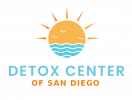Dual diagnosis or co-occurring disorder is a term used to describe the co-occurrence of a mental health disorder and a substance use disorder. Up to 50% of people with a substance use disorder also have a mental health disorder.
Dual diagnosis treatment is a type of treatment that addresses both the addiction and the mental health disorder. This type of treatment is essential for people with dual diagnosis because it can help them to address both of their disorders and achieve long-term recovery.
Benefits of Dual Diagnosis Treatment
There are many benefits to dual diagnosis treatment. Some of the benefits include:
- Improved treatment outcomes: Dual diagnosis treatment has been shown to improve treatment outcomes for people with co-occurring disorder. People who receive dual diagnosis treatment are more likely to stay in treatment and achieve long-term sobriety.
- Reduced relapse rates: Dual diagnosis treatment can help to reduce relapse rates. People who receive dual diagnosis treatment are less likely to relapse back to substance use after completing treatment.
- Improved quality of life: Dual diagnosis treatment can help to improve the quality of life for people with co-occurring disorder. People who receive dual diagnosis treatment are more likely to experience improvements in their mental health, their relationships, and their overall well-being.
- Increased self-esteem: Dual diagnosis treatment can help to increase self-esteem. People who receive dual diagnosis treatment are more likely to feel good about themselves and their ability to achieve their goals.
How to Find a Dual Diagnosis Treatment Program
If you are interested in seeking co-occurring disorder treatment, there are a few things you can do to find a program.
- Talk to your doctor: Your doctor can help you to find a dual diagnosis treatment program that is right for you.
- Search online: There are many websites that list dual diagnosis treatment programs. You can search online to find a program that is in your area.
- Ask your friends or family: If you know someone who has received dual diagnosis treatment, ask them for recommendations.
Dual Diagnoses
Dual-diagnosis treatment is essential for people with co-occurring substance use and mental health disorders. This type of treatment can help people address both diseases and achieve long-term recovery. If you want dual diagnosis treatment, talk to your doctor, search online, or ask your friends or family for recommendations.
The different types of dual diagnosis treatment.
- There are many different types of dual diagnosis treatment, including inpatient treatment, outpatient treatment, and partial hospitalization programs. The right treatment for you will depend on your needs and circumstances.
The importance of finding a treatment program that is a good fit for you.
- When looking for a co-occurring disorder treatment program, finding one that is a good fit for you is crucial. This means finding a program staffed by experienced professionals who understand dual diagnosis and offer the treatment services you need.
The challenges of dual diagnosis recovery.
- Recovery from dual diagnosis can be challenging, but it is possible. Sometimes you feel overwhelmed or discouraged, but it is essential to remember that you are not alone. There are many resources available to help you on your journey to recovery.
- The importance of support. Recovery from dual diagnosis is a team effort.
- You will need the support of your family, friends, and treatment team to succeed. Make sure that you have a strong support network in place to help you through the tough times.
Dual Diagnosis is Complex!
Dual diagnosis is a complex issue, but it is one that can be successfully treated. If you are struggling with dual diagnosis, there are many resources available to help you. With the right treatment and support, you can achieve long-term recovery and live a healthy and fulfilling life.
Here are some key points to remember:
- Dual diagnosis is the co-occurrence of a mental health disorder and a substance use disorder.
- Dual diagnosis treatment is essential for people with dual diagnosis because it can help them address both disorders and achieve long-term recovery.
- There are many different types of dual diagnosis treatment available, so you can find one that is right for you.
- Recovery from dual diagnosis is possible, but it is important to have the right support in place.
If you are struggling with dual diagnosis, please reach out for help. There are many people who care about you and want to see you succeed. You are not alone.
If you or a loved one is struggling with addiction, investing in aftercare for lifelong recovery is important. At Detox Center of San Diego Health, we offer comprehensive aftercare programs that provide ongoing support and resources to individuals in recovery. Our aftercare programs are designed to help individuals maintain sobriety and prevent relapse through counseling, therapy, support groups, and medication-assisted treatment. Contact us today to learn more about our aftercare programs and take the first step toward a healthier, happier life.








